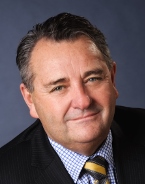The rapid closure of Dover Financial Advisers has highlighted how the current financial advice licensing regime favours institutions ahead of advisers and clients, an industry consultant has claimed.

Responding to recent news that Dover would close in under a month (see: Dover Financial Advisers to Close in One Month), Connect FSB Chief Executive, Paul Tynan claimed there were flaws in the licensing regime and questioned the hurdles being placed in front of Dover advisers seeking new licensees.
Tynan said that alongside being unable to provide service to existing clients, Dover advisers also had “…an almost impossible task of finding a new AFSL within a three-week timeframe”.
He claimed that unpaid remuneration from product manufacturers may not be released to advisers with some manufacturers confirming they were not passing on any revenue to Dover advisers at this time.
“As if this situation and time-frame wasn’t bad enough and things couldn’t deteriorate any further, ASIC has warned potential AFSL’s that they must be diligent in processing any ex-Dover advisers – further hindering their endeavours,” Tynan said.
“Is it any wonder then that several institutional dealer groups have said they will not licence or allow their advisers to buy any ex-Dover businesses,” he added.
“What did Dover advisers do wrong that warrants this appalling retribution…”
Tynan questioned the treatment of Dover advisers and said the larger issue was the many people who had lost access to financial advice since the announcement of the closure on 8 June.
“What did Dover advisers do wrong that warrants this appalling retribution when they are forced to work within a licensing framework that is biased against both the adviser and their clients?” Tynan said, adding many advisers still had financial commitments despite having no income stream at present.
“Who cares about the well-being of thousands of clients, their families and businesses who have lost their advice partner because of the financial advisory sector’s licencing system? Let alone 400 advisers and their staff who have effectively become unemployed,” he added.
Tynan was also critical of the heads of larger licensees and their muted response to the news of Dover’s closure claiming it highlighted the silo mentality that exists within the financial advice sector.
“The most damning outcome of this fortress mentality by the industry’s institutions, key stakeholders and regulatory bodies is that their response has been to focus on self-interest which is not aligned to or reflects the best interest needs of the consumer,” Tynan said.
“If consumer confidence is to be restored, the entire advice community together with ASIC must work together to support and transition the 400 ex-Dover advisers to new AFSLs.”




‘independant’ licensees should be taking class action against ASIC, for not removing the licences of the likes of AMP AND Commbank ,each individual adviser here should be innocent until proven otherwise ,but instead this gutless want of an authority plays with the lives of these people with impunity knowing they don’t have the money for the big hitters..I know personally where ASIC has kept a licencee in court for over 12 years…that should be a hanging offence..time to start a new governing body for independants..
Very well said Paul. Your comment, “The most damning outcome of this fortress mentality by the industry’s institutions, key stakeholders and regulatory bodies is that their response has been to focus on self-interest which is not aligned to or reflects the best interest needs of the consumer…” is spot on.
I fully agree with every comment you have made and I ask everyone who reads this, to add your support to what Paul has said by posting a comment on RiskInfo to that effect. Let’s tell these institutions how we feel about the way they have treated innocent bystanders.
Thank you Paul for highlighting the issues that face not only the 400 advisers and practices who will have to lay off staff.
You have pointed out the wider ramifications that will impact many thousands of people.
There must be a focus on what the full impact will be and how to minimize the financial disasters that this sort of investigation can cause.
People who have loans and who through no fault of their own, are now put into a very difficult position where they could lose assets or be forced to sell assets and the list goes on.
It is all very well for ASIC to investigate, though they must be forced to take a more pragmatic approach to their investigations and before they are allowed to use a sledgehammer to swat a fly, they should get an independent body with relevant Business experience to look at the FULL implications of potential ASIC actions before they enact them, which includes how to minimize any fallout that would negatively impact innocent people.
Hopefully this will circulate through the Trade Mags and Adviser network…A few things to mention & consider…
1. If these poor Dover Advisers don’t receive help before the end of this year, then my understanding is they will not be a registered adviser and therefore will need to Complete a Degree and undergo a Professional Year before they are able to Adviser again. This is courtesy of the new Education Standards that are indeed Law…this is no joke!
2. The AFA (love or hate them) are trying their best to represent the 4,000+ members via a submission to FASEA (the Government Board formed to set the standards). Adviser’s and the AFA’s chance to have some reasonable outcomes set in the standards closes on the 29th of June 2018. I urge all of us to unite in one voice and send an email to consultation@fasea.gov.au registering your support for AFA’s submission. The time is now otherwise we might have standards that are too high to jump over.
1. No. Any Adviser on the FAR between 2016 and 2018 is an “existing” Adviser. All Dover reps are existing Advisers – even if not licensed for the last few months of 2018. They have until 2024 to meet the new standards requirements. An Adviser on the FAR for the first time from 1 Jan 2019 is a “new” Adviser and immediately subject to the new standards.
2. The new proposed standards are now unlikely to change.
Sorry Jape,
The proposed standards a absolutely going to change. They simply haven’t made up there minds about what they are yet.
The only certainty that we have is that the Tertiary sector is all excited about this big new cohort of forced student paying them more money. This will enable people who have never worked in the sector or even in the real world how to do our jobs.
Thank you Paul for highlighting this fortress mentality by the industry’s institutions, key stakeholders and regulatory bodies…I hope innocent advisers and independent licensees won’t continue to be the targeted. Wish the super industry would be looked at closely for they raise massive cash flow for superannuation funds and default insurances that don’t always benefit clients. Dover had worked hard to educate advisers and are so hands on in vetting all advice given. It’s scary that independents can be shut down so easily. Do you think Asic prefers financial planners to work in larger super insitutions rather than for independent licencees?
Comments are closed.